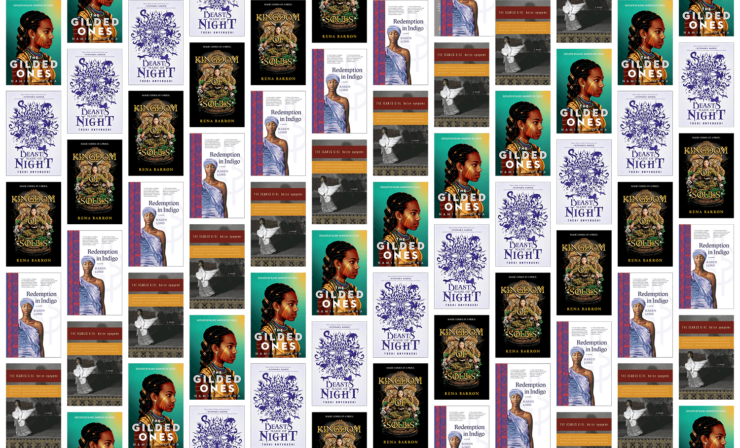Growing up, my home and those of myriads aunts, uncles and extended family were places filled with magic. There were stories of fantastical ancestors told round the dinner table and late evening front porch gatherings, music in language and rhythms I barely understood. And then there were books, tomes that explored African spirituality and folklore. These were my earliest history lessons.
And this collection of treasures helped shape the person I am today. I suppose it was inevitable that when I became a writer, these themes would feature prominently in my work. And I’m exceptionally pleased to see so many authors and similar works of fiction now gracing bookshelves.
There are too many to name—a problem that makes me happier than you can imagine. But here are five novels from writers across the globe, that in very unique ways have settings that are based on West African folklore, rootwork, or traditional magic.
The Gilded Ones by Namina Forna
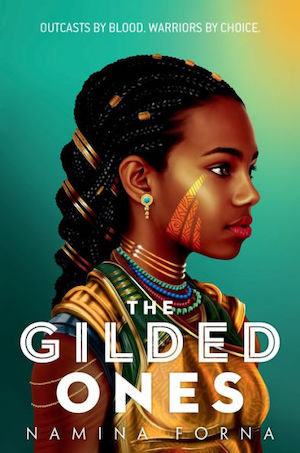
The first in The Gilded Ones trilogy, this is the West African-inspired story of sixteen-year-old, Deka. She lives in the mythical land of Otera where women must prove their worthiness to join their communities in the Ritual of Purity. But Deka bleeds gold—impure, demonic gold.
For her “crime”, she endures months of torture in a bleak dungeon. Deka is killed but inexplicably keeps waking up. When a mysterious woman reveals she is Alaki—a warrior—and offers her a place in an army of other girls just like her, Deka accepts.
This is a patriarchal society, one that mirrors the historical and even modern day cultural environment. A girl’s blood determines her purity and thereby her place in society, a practice that still persists. And though the war takes place with fantastical creatures, the author and her family came to America as a result of the Sierra Leonean civil war. Its impact can be felt in those very intense battles. The setting of this novel skillfully blends elements of both West African culture and the author’s Sierra Leonean heritage.
The Icarus Girl by Helen Oyeyemi
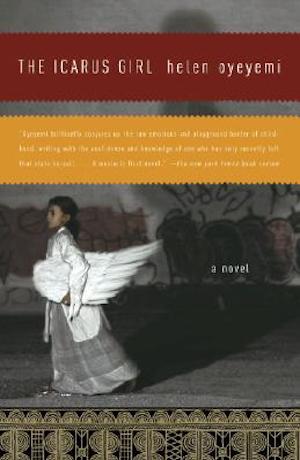
This is a novel that still gives me chills when I think about it. What’s unique is the combination of Nigerian and Greek mythologies. It’s part horror story, part fantasy, with a hint of realism.
To say that eight-year-old Jessamy Harrison (Jess) is a troubled child would be an understatement of epic proportions. She screams, has tantrums. School is a chore, and a place of bullies, not friends or playmates.
Her worried mother decides that a trip home to Nigeria is in order. But there, Jess picks up an imaginary friend named TillyTilly. It doesn’t take long for it to become apparent that there is something off with her new friend and she grows more sinister as the story progresses. TillyTilly is revealed to be acting on behalf of Jess’s twin that died at birth. Terror and magic ensue. It’s been noted that the Yoruba of West Africa have the highest rate of twin births in the world and that has spurned a complex belief system that continues to evolve. Jess and TillyTilly, as Ibeji (Yoruba for twins), are representative of some of the more frightful aspects of that history and mythology.
Beasts Made of Night by Tochi Onyebuchi
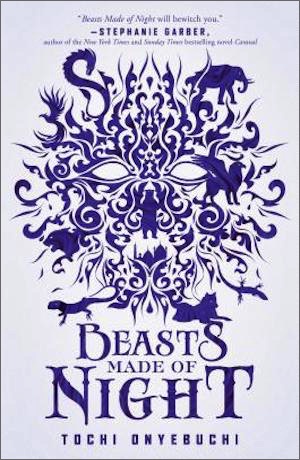
Set in a magical world inspired by Nigeria, Kos is a city where nobles can—get this—have their sins magically extracted in the form of sin-beasts. Yes, in this world, guilt yields monsters.
But the protagonist, Taj, is a most talented member of the aki, a group of sin-eaters bound to their roles by mages. When the aki kill a sin-beast, a tattoo representation of the sin appears on their bodies. So they carry the physical and mental burdens of the nobles’ sins. For most of the aki, the guilt drives them mad, but not Taj. He’s killed more than most, and he’s covered in the tattoos to prove it.
The aki and their truly unique abilities draw from folktales featuring Nigerians as alchemists, people who can convert and transform everyday items through magic. Excellent worldbuilding and a unique magic system round out the fictional Nigerian setting.
Redemption in Indigo by Karen Lord
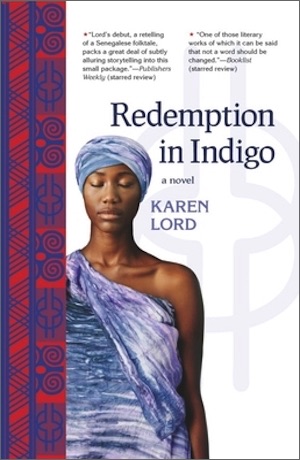
Dr. Karen Lord is from the Caribbean island of Barbados. There’s much to be said of the brilliant works that have been written based on magical elements of this part of the world but Redemption in Indigo is actually loosely based on the Senegalesee folktale, “Ansige Korumba the Glutton”. In this story, Ansige is a glutton, and a mean one. His wife, Paama tries to keep up with his insatiable appetite but it’s never enough. She eventually leaves him. Ansige loses his wife and his wealth. Moral of the story: greed, in any form, is not good.
Redemption in Indigo reads like a parable and features a woman named Paama who is the wife of the outlandishly gluttonous, Ansige. Grown tired of his constant demands, she makes an escape. But her reprieve is a temporary one. Only a couple years later, he tracks her down. This all draws the attention of the Indigo Lord, one of the powerful spirits called Djombi. Paama is gifted a special power that allows her to actualize certain events and chaos ensues. Eventually though, The Indigo Lord comes looking to get his power back. A delightful read, full of magic.
Kingdom of Souls by Rena Barron
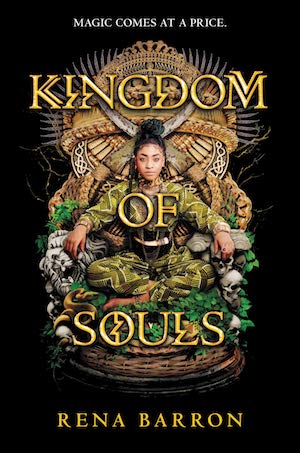
Kingdom of Souls is the first in a trilogy of the same name. In this West-African inspired world, sixteen-year-old Arrah is the daughter of powerful parents, but ironically, has no magic of her own. She’s a disappointment to her mother and herself, but a chance for redemption presents itself.
Children begin disappearing. The Orisha (West African gods) aren’t answering prayers and the Kingdom’s priests are coming up empty, so Arrah springs not only wants to solve the mystery but sees the opportunity to prove her worth. The Orisaha, voodoo, and folk magic feature prominently in this story. The chapters and scenes that switch to the Orisha point of view really shine. There is one in which Re’ Mec, Orisha of the Sun, talks with his sister. He laments his disappointments with their human subjects, his own failures and despite it all, the commitment to stop the Demon King.
***
This list is just the proverbial tip of the iceberg. What are some of your favorites?
Buy the Book
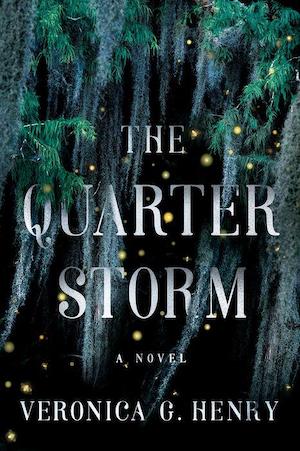

The Quarter Storm
Veronica G. Henry is the author of Bacchanal, The Quarter Storm, and The Foreign Exchange (February 2023). She is a Viable Paradise alum, and a member of SFWA. Her stories have appeared in FIYAH Literary Magazine.










